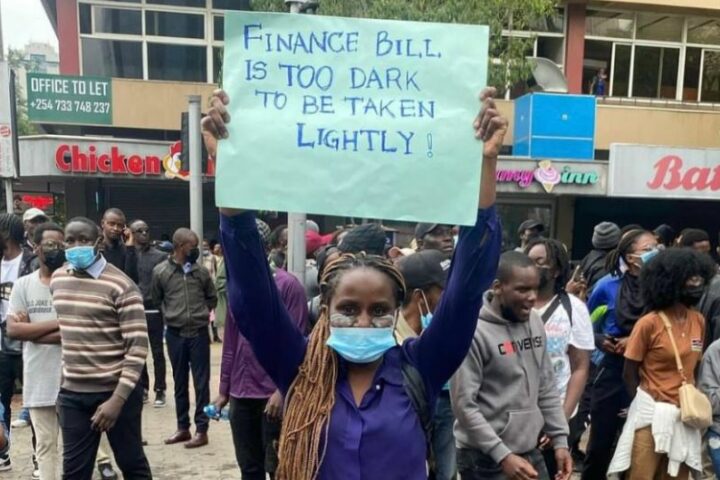 |
| Paul Kinuthia |
L’Oreal, the world’s leading cosmetic company has acquired the health and beauty division of Interconsumer Products, one of Kenya’s largest manufacturers of personal care and beauty products.
The deal was closed on Friday April 12 and was announced only today by Wang’ombe Kariuki, the Director General of Kenya’s Competition Authority. Meanwhile, the Kenyan founder of Interconsumer Products, Kenyan businessman Paul Kinuthia, is expected to earn tens of millions of dollars from the acquisition.
The entire details of the deal still remain sketchy, but according to a transaction adviser on the deal who spoke to Business Daily, Kenya’s largest business newspaper, the transaction is worth billions of shillings. The shilling currently trades at Ksh 84.5 to the dollar, so a deal in the multi-billion shilling bracket would be worth at the very least, Ksh 3billion ($35.3 million).
“We closed the deal on Friday at 11am and all I can a say for now is that the transaction is worth billions of shillings. All the details will be made public on Monday (today) and it’s a great Kenyan story for a man who started the business in Kariobangi and has now joined the billionaires’ club,” said the advisers in the transaction who asked for anonymity because L’ Oreal is yet to clear the acquisition with regulators in France and London where it is listed.
According to the terms of the deal, L’Oreal would acquire only the health and beauty business of Interconsumer Products from Paul Kinuthia. Kinuthia will still continue to own and run the non-health and beauty businesses of the group like the diapers and sanitary division.
Interconsumer Products is a Kenyan persona care and beauty products company, which manufactures everything from baby lotions to powder, Shampoos, Hair gels, body and facial creams and relaxers. The company was founded in 1995 as a sole proprietorship by Paul Kinuthia, a relatively unknown Kenyan businessman.
Kinuthia has a remarkable story. In 1995, he started off manufacturing shampoos and conditioners from a makeshift apartment in Nairobi with start-up capital of Ksh 3,000 ($40). He made these products manually using plastic drums and a huge mixing stick and heating oils, delivering his products by handcart to local salons and hairdressers. In the beginning, commercial banks refused to fund his venture while mainstream salons, beauty parlours and large retail outlets refused to stock his product because it was too native.
As the demand for his products grew, Kinuthia moved the business into bigger premises in downtown Nairobi and expanded his product range to include hair gels and pomades. While the bigger, sophisticated salons and supermarkets snubbed his products, they were very popular with street side local hairdressers because of their availability and significantly lower prices in comparison to the products on the shelves of the big retail outlets. As the products became more popular with local hairdressers, Kinuthia ploughed back his profits into moving into an even bigger place, financing growth, increasing his production capacity and extending his product range. In 1996, he incorporated a limited liability company and went on to produce body lotions and hair treatments. The new company set up better operational strategies, laying emphasis on quality and improving its packaging. By the late 90s, the company’s products were commercially available across Kenya’s mainstream retail and wholesale chains and were already commanding a sizable market share. By 2001, the company was already exporting its products to neighbouring Tanzania, Uganda and Rwanda.
As revenues shot through the roof, Kinuthia and his team continued to innovate, diversifying their product range to include diapers, soaps and baby jelly. It is now East Africa’s dominant manufacturer of personal care and beauty products and owns some of Kenya’s most revered brands like Nice & Lovely, Queen Elizabeth, Clarion and Bouncy. In Kenya, Interconsumer Brands is rivalled only by Tiger Haco Industries, a leading manufacturer of body lotions, hair products, ballpoint pens and food products.
In 2011, L’Oreal opened up a regional office in Nairobi to get a slice of the country’s burgeoning low-end cosmetic market. Analysts believe the French cosmetics giant has faced stiff competition from local players like Interconsumer Products and that it had targeted Interconsumer for a takeover since 2011.
Speaking on the deal, Patricia Ithau, L’Oreal East Africa’s managing director said to Kenya’s Business Daily: “A big opportunity presented itself and we cannot ignore it. There is a developed personal care market here that we are looking to further tap into. We have been in the market mainly through traders and a structured distribution network had been lacking.”
The writer put a call through to Interconsumer to speak to Paul Kinuthia. He was not available.
Forbes






